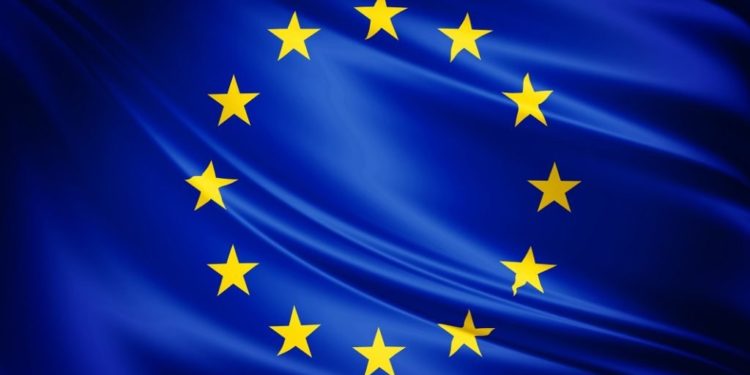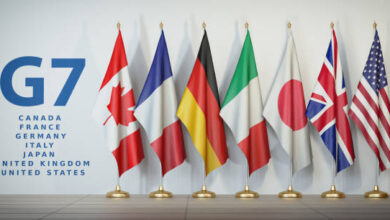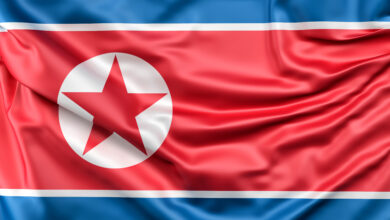The European Union’s normative power in question through the neighborhood Policy

Since its creation, the European Union had as a project the preservation of peace to avoid the advent of a new world conflict. This peace has been built through the elaboration of an economic community that has pushed back its borders until 2013, and whose stated aim is to produce a European cultural integration, whose effectiveness would be to be demonstrated. This peace was built through the development of an economic community that extended its borders to 2013, as well as through the promotion of universal standards and values, such as the protection of human rights.
In opposition to the hard power that gathers both economic power and military force (Blanchard & Lu, 2012), the soft power designates a register of non-aggressive actions to accomplish an objective or to make another nation act in a certain way (Nye, 1990). This is the register favoured by the European Union which, beyond its foreign policy, implies the adoption of fundamental values to be able to consider integration. The integration process is itself a sufficient motivation to produce an alignment of the candidate-state with the European guidelines, as Beauguitte proved it through the alignment of candidate countries with the European position on the death penalty (Beauguitte, 2012). In academic circles, the EU is often associated with the concept of “normative power”, overriding that of soft power, a power based on the respect of the norm and its adoption by non-member country. The normative power concerns of course the adoption of norms by a country under the influence of another, but it also includes values such as peace or freedom, which are particularly prevalent in the European’s vocabulary.
This paper will first attempt to define the extent to which the EU can be considered a normative power to perform an accurate analysis before questioning the applicability of this concept to the European neighbourhood policy. In the last part, this article will try to put into perspective the current situation of the European normative power by questioning its contemporary correspondence to this notion.
The European Union: which normative power?
It has now been 8 years since any country joined the EU, closing a wave of enlargement that was intended to enlarge the European community, and by extension, contribute to the integration of new member countries into a common European culture (Gateva, 2018), or at least that was the objective. The end of the enlargement testifies to a paradigm shift from integration through enlargement to a global diffusion of its normative system. In other terms, the EU spreads its norms and patterns of thinking the “normal” worldwide. Indeed, in the European Consensus on Development in 1996, we can read that “EU partnership and dialogue with third countries will promote common values of: respect for human rights, fundamental freedom, peace, democracy” etc. The concept of normative power is ideational, involving “normative justification rather than the use of material incentives or physical force” (Manners, 2009). Close from the Weber “ideal-type”, the normative power is a key to better understand and better classify the social world around us, but reality will never perfectly conform to the model. We will therefore focus more on the effectiveness of the transmission, the diffusion of norms from the EU to external countries and the representations raised by these transfers.
In this paragraph, we will therefore address the question that arises from this scientific contextualization: To what extent has the EU the ability to define what passes for “normal” in a globalised world (Manners, 2002)? Let’s take the example of the Monterrey process “Everything but Arms” in 2002 in the framework of the external development policy where the European discourse claims as objectives sustainable development and the adoption of global rules in the South (Orbie, 2004). For the author, the EU’s self-perception can play a key role in its external policy by imposing standards at the international level. The implementation of these additional “conditions” embedded in European external policies fits perfectly with the idea of normative power defined above. Without being coercive, this diffusion of norms is not necessarily positive, or at least not necessarily adapted to the context in which it takes root. To use the same example of the Monterrey process, the European Commission put forward the idea of a policy of solidarity and good governance, which may not fit with the African economical needs (Storey, 2006). The EU thus imposes, through negotiation, standards that it considers universal, even though they are not on the agenda of every country at the same time. Still on the African continent, within the framework of the Bologna process, Europe has imported its LMD higher education system and its ECTS credits in order to improve the quality of training in Francophone African universities (Charlier & Croche, 2012). However, the local problem was more related to the spin-off of universities and the lack of personnel to provide training, a problem that has not been resolved by European policies (ibid). In reality, European education policy has universalizing claims, aiming to have the European model of higher education recognized as the “good model” from which the whole world should learn. Countries that refuse this model find them marginalized, isolated on the international scene in the field of education, and therefore unfit for cooperation and the reception of supranational policies. The countries that adhere to this model hope to contribute to the global competitiveness, and therefore the economic competitiveness of their country. The European Union thus responds well to the analysis grid of a normative power, which if it wants to be peaceful, is no less constraining in addition to being often unsuited to the target country.
The norm in the test of the neighbourhood policy
The European was a tool for the European Normative power as we saw before, influencing national standards even before integration, the latter assuming the application of certain standards (Haukkala, 2008). After the last enlargement wave, the alternative that has been found was the European Neighbourhood Policy (ENP). The goal of this policy is simple: established a privileged partnership with the European Border States, in a post-enlargement perspective. To quote Romano Prodi, former President of the Commission, the EU can offer its neighbours “everything but membership”, in a sort of Europeanization without compensation. The aim of the ENP is to bring neighbouring countries as close as possible to European standards in exchange for membership of a “community of values” (Petithomme, 2009). The ENP thus appears to be an instrument entirely dedicated to European regional normative hegemony. The original term for this policy in 2002 was “a Wider Europe”, which is rather evocative in our context in that it is clear that the EU wanted to extend its “community of values” beyond its borders. Although it is not envisaged by the EU, some neighbors hope that the ENP will bring them sufficiently close to its supranational bodies to prepare for future membership, which plays the role of the carrot at the end of the ENP stick. But is this normative power embodied so perfectly by the ENP really effective? It seems interesting to look here at the legitimacy granted by neighbours to the European normative power on the one hand, as well as to the effective scope of the values that are intended to be conveyed.
In one hand, the “common values” are economic, political and institutional principles appearing “non-negotiable” and which the member states already possess, contrary to the neighbourhood (Zaiotti, 2007). These policies obey to a incentive-based approach, that is mostly ineffective, due first to a lack of incentives, and then the difficulty in enforcing conditionality clauses when even basic human rights are violated (Del Sarto & Schumacher 2005) especially in the previous dictatorships of North Africa. More than universal common values, it is more about European values in a post-colonial context. Moreover, in practice, this package of common values remains very abscond, or at least imprecise. The commitments to values are rather vague in the finalized Action Plans (Johansson-Nogués, 2007), which are the concrete documents of what should be the implementation of the ENP. They are kept in a very general language and without specifying what exact measures in terms of democracy, human rights and liberties should be taken by partners (ibid). This imprecision leaves room for interpretation, which varies from area to area, and can sometimes leads to undesirable effects. For example, the normative power of the EU for the Mediterranean neighbourhood rhymes with hope for peace and liberation from their tyrants (Pace, 2007). On the contrary, these common values are negotiated by the EU with the leaders of their dictatorships, because the latter need access to a market such as Europe’s (ibid). Unclear, imprecise values, misinterpretation, the limits of the European normative power appear numerous, harming as many times the efficiency of their application.
The lack of efficiency is not the only consequence of these attempts to impregnate the norm. Indeed, to take once again the example of the Southern neighbourhood, the European normative power loses its legitimacy because Mediterranean people read the EU’s narrative quite differently from their own regimes (ibid). The problem here is that the EU seeks the penetration of its culture into that of its neighbours, while the exact opposite occurs with an opposition between “us” and “them”, however idealized it may be. This is what Thomas Diez called in 2006 a “normative power paradox” which means that rather bringing closer the EU and its neighbours, it produces the contrary effect of distancing. In fact, the idea of normative power is attractive, especially for the EU, which is seeking legitimacy on the international scene as a genuine undisputable actor. In other terms, concerning the Neighbourhood Policy, normative power is a part of each international actor’s foreign policy which balances between utopian civilian and military models (Smith, 2005) without ever taking a position on one of the two extremes. Far from being the perfect tool of European normative power, the ENP projects a perfect illusion of what the transmission of norms from the EU to its neighbours should be, without, however, reaching the measure of it.
Having demonstrated, on the one hand, the ineffectiveness of normative power in the neighbourhood policy and, on the other, the loss of legitimacy of European ideals that it engendered, it is now essential to know whether this situation has now taken a different turn.
European paradigm shift
The ENP suffered a lot from a dilemma regarding its objectives: ensuring the stability and security in the neighbours, and transforming the neighbours (Eylemer, 2020). This double objective has led to irreconcilable initiatives and contradictions that have limited the normative intent of these policies. But it would seem that today, the direction given to the neighbourhood policy by the EU is different, based on new ambitions. Indeed, the term normative power has gradually been replaced by another concept included in the EU Global Strategy of 2016: the principled pragmatism.
This concept extends the will to promote European values abroad; however, it links these values to the interests of the EU (Kotsopoulos, 2017). This could be a return for the material interest of the EU in a more utilitarian approach. To better understand the basis for principled pragmatism, we have to focus on another new foreign policy’s objective: the resilience building in the neighbours. The resilience is “the capability of systems and individuals to cope with significant adversity or risk” (Unesco) and is a goal particularly targeted by the EU for its neighbours. The idea is to securing the EU border by securing its neighbourhood. First of all, we observe a decrease in the importance of values in favour of more material interests, whether economic or security.
The principled pragmatism is supposed to be based on realistic foundations of international politics. The EU is therefore prepared to enter into partnerships with countries that do not respect its values, if this would be economically beneficial. This was seen last year, for example, with China, where the EU negotiated an investment agreement despite the human rights crisis in Xinjiang. This is what Biscop calls the “Realpolitik with European characteristics” (2016): This statement invalidates the previous tendency to consider foreign policies as purely materialistic policies implementing some European values, as a personal touch. In line with liberal thinking, every foreign policy is now seen as a cost-benefit calculation of cooperation on the basis of European capabilities to secure or export a set of designated values and principles (Snyder & Vinjamuri, 2012). It is no longer a question of normative power, with the promotion of standards taking a back seat. The principled pragmatism takes a reality, factual situation into consideration and is only concerned with principles, standards and values when there are “anchored in a supportive configuration of power and interest” (ibid).
Applied to the neighbourhood policy, the principled pragmatism results in the abandonment of democracy as an ultimate goal for the neighbours, even though democracy and freedom and human rights appear inseparable. It is a kind of acceptance of reality by the European Union (Biscop, ibid). The interest is obviously twofold: by improving the capacity to reform (via resilience support measures) the EU displays an image of confidence in the civil society of its neighbours on one hand. On other hand, this can be interpreted conversely as an upper-down approach where by leaving the initiative of the way to the neighbour, the EU does not take the risk of raising opposition to its actions. This is the fatal image that the EU always sends back, oscillating between democracy and technocracy.
To conclude this paper, we can say that the European normative power was to be relativized in the neighbourhood policy, much more than it was praised by the Commission. The EU appears more like an external partner like any other, closer and more powerful, but not necessarily altering national systems. The Commission and the EEAS are now working on a more “realistic” approach, taking into account factual situations in order to negotiate and try to enhance certain values. Without saying that it has disappeared, the normative power that was once at the heart of European foreign policy concerns is now in retreat, giving priority to more material interests. The EU must nevertheless be careful not to lose all its credibility by closing its eyes too much on values that are fundamental to its construction. If it is an ideal of peace and freedom as seen from the outside, then it must work to maintain this image by being firmer in its negotiations with regimes that violate its values. Including civil society in the transformation of societies, as is now foreseen in the Neighbourhood Policy, is a good idea, but it should not be a technocratic pretext for inaction. Despite this liberal turn, the European Union has to keep its normative ambitions in order to promote human rights and freedom, even if it is across its borders.
A. E. Juncos, Resilience as the new EU foreign policy paradigm: a pragmatist turn?, European Security, 2017.
A. Storey, Normative Power Europe? Economic Partnership Agreements and Africa, Journal of Contemporary African Studies, 2006.
E. Gateva, European Union Enlargement Policy, Politics, 2018.
E. Johansson-Nogués, The (Non-)Normative Power EU and the European Neighbourhood Policy: An Exceptional Policy for an Exceptional Actor?, European Political Economy Review, 2007.
H. Haukkala, The European Union as a Regional Normative Hegemon: The Case of European Neighbourhood Policy, Europe-Asia Studies, 2008.
I. Manners, The Concept of Normative Power in World Politics, Diis brief, 2009.
I. Manners, The normative power of the European Union in a globalised world, EU Foreign Policy in a Globalized World: Normative Power and Social Preferences, 2002.
J. Biscop, All or nothing? The EU Global Strategy and defence policy after the Brexit, Contemporary Security Policy, 2016.
J. Kotsopoulos, Principled Pragmatism? The Limits of EU Foreign Policy in Southern Africa, ECAS7: 7th European Conference on African Studies, 2017.
J. Orbie, EU Development Cooperation: From Model to Symbol, 2004.
J. S. Nye, Soft Power, Foreign Policy, 1990.
J. Snyder & L. Vinjamuri, Principled pragmatism and the logic of consequences, International Theory, 2012.
J-E. Charlier & S. Croche, L’influence normative du processus de Bologne sur les universités africaines francophones, Éducation et sociétés, 2012 (vol. 29).
J-M. F. Blanchard & F. Lu, Thinking Hard About Soft Power: A Review and Critique of the Litterature on China and Soft Power, Asian Perspectives, 2012.
K. Smith, Still ‘civilian power EU’?, European Foreign Policy Unit Working Paper, 2005.
L. Beauguitte, L’ONU contre la peine de mort : la puissance normative de l’UE en question, Actors’ Strategies and Spatial Logics: EU, UN and Death Penalty, 2012
M. Pace, Norm shifting from EMP to ENP: the EU as a normentrepreneur in the south?, Cambridge Review of International Affairs, 2007.
M. Petithomme, Quelle politique de voisinage pour l’Union Européenne, Politiques européenne, 2009 (n°28).
R. A. Del Sarto & T. Schumacher, From EMP to ENP: What’s at Stake with the European Neighbourhood Policy Towards the Southern Mediterranean, European Foreign Affairs Review, 2005.
R. Zaiotti, Of friends and fences: Europe’s neighbourhood policy and the ‘gated community syndrome’, Journal of European Integration, 2007.



